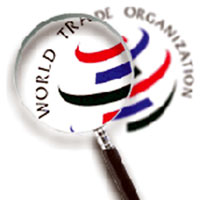 The voices in Hong Kong against the WTO will be rising now but they are like the minority parties that take to the streets when two-thirds of the parliament has approved legislation.
The voices in Hong Kong against the WTO will be rising now but they are like the minority parties that take to the streets when two-thirds of the parliament has approved legislation. This week's meeting is another round of deliberations and the rules of negotiations suggest that might will always be right. This is also true at the WTO. The BIRC countries (Brazil, India, Russia and China) will provide some resistance but getting their way on issues like farm subsidies is a futile fight.
For Nepal two issues are clearly emerging. First, as an LDC (ie, a poor country that does not have the leverage by itself to alter the status quo) it must see what it can get from the world travel regime. Second, we must realise that protectionism is a dying 'ism' and the sooner we embrace the rules of the new game, the better off we will be. Although our entrepreneurs and leaders would like to see protectionism continue, the world's economic heavyweights won't let it happen. Protectionism is a right reserved only for them.
Nepal needs to think outside the box. Farm subsidies will never make our products competitive given the high transportation costs here and the current state of our agriculture. We need to take advantage of the food surplus in our southern neighbour. If Indian rice is cheaper, then why do we grow rice? With India's economy growing just an open border away, we will never run short of food grain. We just need to ensure that the distribution system is efficient.
This can happen if the government gets out of the distribution business. The property owned by the Nepal Food Corporation is worth more as real estate than as storage for grain or at times to incarcerate political activists. Let private business determine distribution and prices. People living in a few isolated pockets in far-flung hills will need to be taken care of by a social security program and not via a government food grain distribution system. Eventually they will migrate to areas where food grain prices are better and opportunities are plenty-it has happened in the past and it will happen again in the future. We can then use available land to embark on some large-scale high value activities such as growing citrus fruits for multinational companies or developing floriculture to meet the region's growing demand.
Reducing import duties does not kill local industries if they are efficient and professionally managed. Look at Thailand and India-lowering duties there has made local manufacturing more competitive. Arbitrage as business is about being competitive and not about how much one can make from duties. Our focus should be on the export of labour and integrating into larger labour markets. The integration of east European countries into the EU has provided them with labour markets like never before. Here we surely have a competitive advantage.
Our protected businesses and plethora of morality-policing NGOs will always want the WTO out but since we are now a member, the best way forward is to take the most we can from it. Might as well ride the tiger otherwise it'll eat you up.



